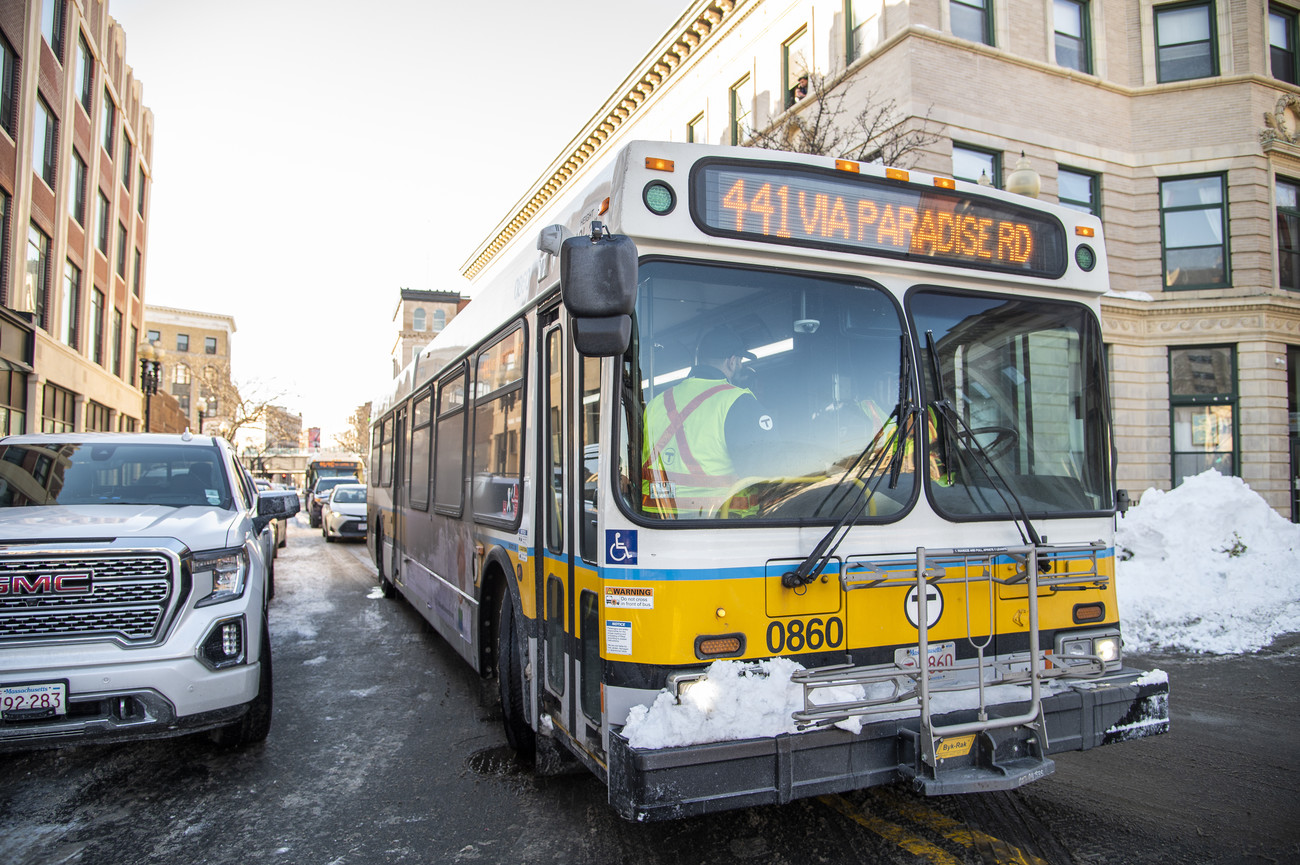The town’s Housing Production Plan Implementation Committee discussed the public process and timeline for MBTA communities zoning at a meeting held at Abbot Hall Tuesday evening.
In 2021, the Commonwealth of Massachusetts instituted a law mandating that MBTA communities “shall have at least one zoning district of reasonable size in which multi-family housing is permitted as of right and meets criteria set forth in the statute.”
The statute requires the zoning to be a minimum gross density of 15 units per acre, located not more than half a mile from a commuter-rail station, subway station, bus station, or ferry terminal. They must have no age restrictions and be suitable for families with children.
Because the MBTA 441 bus runs in Marblehead, the town is considered an “MBTA-adjacent community.”
Marblehead is not currently in compliance with the new law. The town has two districts, the unrestricted district and the shoreline unrestricted district, that allow multifamily dwellings by a special permit from the Board of Appeals. However, because those multifamily dwellings require permits, they are not “as of right.”
Town Planner Rebecca Curran Cutting presented the zoning’s timeline. In 2022, the town opened a public-feedback period that closed at the end of March in order to receive public opinion on the plan’s draft. Changes were then made and a presentation was brought forth to the Select Board. The committee also had to submit and complete the MBTA community information form, as well as updated geographic information system parcels.
The Commonwealth allowed the town to be downgraded from an MBTA community to an adjacent community, meaning some of the requirements were lessened. Therefore, a completed plan needs to be set in place by the Dec. 31 deadline to be put on the 2024 Town Meeting warrant. If that does not happen, Marblehead will not be in compliance with the MBTA zoning law.
Curran Cutting laid out the ramifications if the town does not comply with the zoning law by the 2024 Town Meeting deadline.
“If you don’t comply with this, if you decided not to do it, the town wouldn’t get housing-choice grants, local capital-fund projects, and MassWorks Infrastructure Program,” she said. “That’s the penalty if you don’t (comply).”
Committee member Dirk Isbrandtsen sparked a conversation about whether the impacts of not complying are strong enough that they would “become unpalatable” for residents who might oppose the zoning.
“My opinion is that there’s a heavier price to pay if you don’t comply,” Town Administrator Thatcher Kezer said.
Curran Cutting said that the multifamily district has to have a minimum capacity of 897 people in a 27-acre area. Before being downgraded to an adjacent community, the required acreage was set at 50. Contiguous areas in the zoning also have to be at least five acres.
She added that meetings, starting with a Planning Board meeting in September, will be held on the town’s zoning plan through December “in order to put something on the warrant for January.”
Committee Chair Erin Noonan, who is also the chair of the Select Board, asked about the need for public forums in the coming months. Curran Cutting replied that there will be a public workshop through which the committee will be able to gather residents’ thoughts on the plan.
“From that, we draft a plan and then we have another public meeting… We find out what people are thinking and we do the draft, and then we have a public hearing on the draft,” she said. “It’s a big process.”
The committee also agreed to have members reach out to different MBTA communities, which are similar in density and ahead of Marblehead in the process, to ask questions about their experiences.
Questions were also raised by Isbrandtsen about whether properties located in the zone that is chosen would need to be leveled or divided in order to create multifamily dwellings.
Kezer responded, saying that the property owners would be able to add onto the properties by creating apartments above stores or restaurants that may be located underneath if needed. He highlighted that doing so would help generate revenue for the town, which was a major issue that led to the now-failed override in June.
The committee has not picked specific zones in town. However, maps of the plazas located off of Pleasant Street were presented. Curran Cutting said the Planning Board meeting in September will be the first step in determining the most viable options for the zoning.

